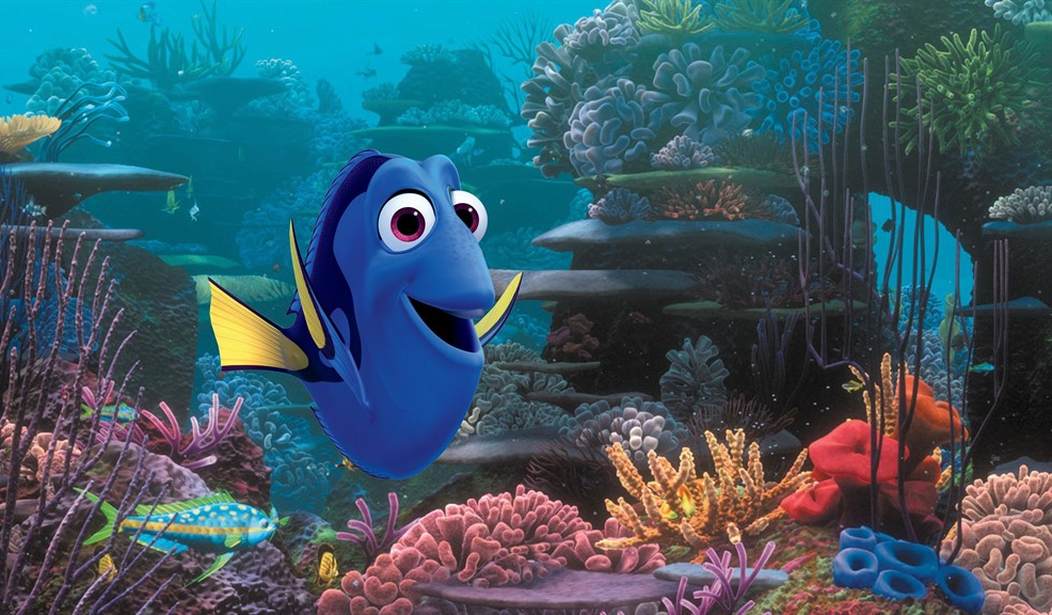Sure -- you're astute at investigating the sea; but what gets you frisky for some motion in the ocean? It's an important question, according to an alliance of academics.
On December 13th, six scholars published the paper "Toward Equity and Justice in Ocean Sciences." As anti-colonialists, they clap for contemporary science's woke awakening:
The global scientific community is...going through a self-reckoning in which it is...re-examining its existing practices, many of which are based on colonial and neo-colonial perceptions.
"Is the ocean science community equitable?" the group asks. An exploration involves applause for BLM:
The global COVID-19 pandemic exposed geographic inequalities in healthcare access and vaccine distribution. At the same time, grassroots social movements such as Black Lives Matter highlighted systemic racism rooted in colonial and neo-colonial perceptions. These played a significant role in the collective shift...forcing...the research community to take a hard look at how we have and continue operating.
RELATED: Multinational Companies May Be Rethinking BLM Support After Pro-Hamas Statements
Since 2020, oceanology has seen slews of publications, webinars, and round-table events aimed at "ocean equity and justice." The authors hail "the United Nations (UN) Oceans conference, which specifically focused on finding solutions that would help achieve diversity, equity and inclusivity (DEI) in the ocean space."
Following its social-justice edict of "Leave no one behind," the UN Decade of Ocean Science program provides, in part:
- A focus for funders to support diverse participation in ocean stewardship
- An opportunity to advertise successes (e.g., MeerWissen podcast of African early-career researchers)
- A platform for networking and publicity (e.g., Empowering Women in Hydrography; Early Career Ocean Professionals DEI Initiative)
Even so, will change adequately occur? The scholars -- from enclaves of esteem such as The University of Western Australia Oceans Institute, Universidad Nacional Physics Department, and the University of Cape Town Department of Biological Sciences -- won't wait to find out. They're calling on "antiracist interventions" -- and an end to white privilege:
Racial and ethnic discrimination results in the marginalization and continued active exclusion of Black, Indigenous, and People of Color (BIPOC) in the ocean sciences. Conscious and unconscious biases around individual capacity related to place of origin and racial or ethnic background limit the contributions of some, while also unfairly elevating those in positions of power and privilege.
Furthermore, we need more gay people studying fish:
Be inclusive of Lesbian, Gay, Bisexual, Transgender, Queer, Intersex and Asexual (LGBTQIA+ ) researchers.
One way to accomplish the above:
Using appropriate language during the article submission process and allowing for invisible name changes retrospectively can go a long way to preserve the dignity of transgender researchers.
These days, "diversity" is key -- we're told it makes us stronger. Sunset of strength, we're sailin' toward ya:
Harvard DEI Dept. Hosts Back-to-School Bash for Everyone Who Isn't White
The Pentagon Forms a Diversity and Inclusion Office, Installs a Chief Who Likened Trump to Hitler
University Professor on 'Diversity and Inclusion' Panel Announces She Keeps Away From White People
Where sensitivity is concerned, science is leading the way:
Report: 'DEI' in Science Publications Has Surged by More Than 4,000 Percent
Science Journal Decries Racism in Geology, Claims Black People Are Too Scared to Hold Hammers
And Earth's acquatic aficionados have ushered in unprecedentedly kind care:
Woke in the Water: Shark Advocates Call for an End to the Word 'Attacks' in Favor of 'Interactions'
In addition to dreaming of a world in which more Lebanese lesbians collect samples and more half-Haitian, half-Eskimo asexuals measure levels, the anti-colonization authors wish to see an increase in "non-native English speakers writing papers." Beyond that, we should put aside what white workers think they know; perhaps tribespeople are way ahead:
Most established research methods in ocean science have their roots in Western philosophy and thinking due to centuries of Euro-American colonialism. This has led to a wealth of knowledge residing in Indigenous...communities often being undervalued or overlooked with detrimental consequences for the marine environment and missed opportunities for innovative solutions.
And "the Indigenous" will be more informed on what information we should never have:
Indigenous scholars are also better able to identify when it is inappropriate to publish information or data sacred to Indigenous Peoples or communities. It is also important to ensure that when such knowledge is shared, it is not taken, repurposed and exploited in a way damaging to the knowledge providers or their culture and traditions.
So we may end up dumber, but at least we'll be wide awoke.
In the end, hopefully, the six scholars will be satisfied. And we'll reach a point where an intersex polyamorous Apache decides what we're allowed to know, while a Zulu-speaking trigender pansexual schools us in writing on what's under the waves.
Change is in the water. And where diversity, equity, and inclusion are concerned, sea science seems set for a very deep dive.
-ALEX
See more content from me:
Dough Nuts? Flour Company Bans Caucasians From Contest to Battle Baking's White Supremacy
Taxpayer-Funded #NotWhite Art Exhibit Condemns Colorblindness as a Caucasian Crock
Find all my RedState work here.
Thank you for reading! Please sound off in the Comments section below.














Join the conversation as a VIP Member